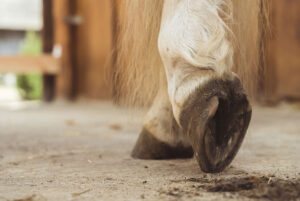Death of a Herdmate
- Topics: Article, Behavior, Euthanasia, Older Horse Care Concerns

—Rachel, via e-mail
A: Whenever a horse leaves a long-established group, the behavior of certain individuals and the group dynamics can certainly change in significant ways. It probably doesn’t matter whether the animal dies or just leaves the herd.
It seems that owners worry most that when one bonded partner leaves, the remaining partner will have a change for the worse. In many cases the remaining horse immediately attaches to another herd member or, as you have seen with your mare, there can be a change that appears to represent less dependence and greater confidence
Create a free account with TheHorse.com to view this content.
TheHorse.com is home to thousands of free articles about horse health care. In order to access some of our exclusive free content, you must be signed into TheHorse.com.
Start your free account today!
Already have an account?
and continue reading.

Related Articles
Stay on top of the most recent Horse Health news with


















